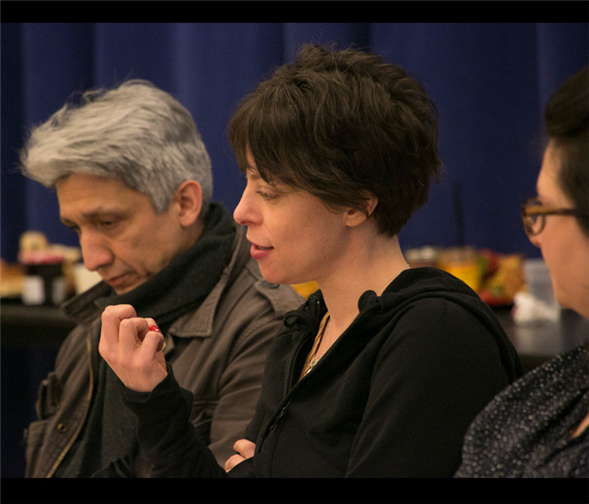Translate Page

Arin Arbus finds surprises in an adaptation A Doll's House
---
It's remarkable how Thornton Wilder imagines Kristine.
In his adaptation of A Doll's House, he finds a startling moral complexity in the character, who frankly seems forgettable in some translations of Ibsen's masterpiece. Wilder's verbally sparse, emotionally dense approach clarifies that Kristine (or Christina, as he calls her) has always been a necessary counterpoint to the heroine. We see the two women take different forks in the same road, one moving toward an honest relationship and the other toward a necessary isolation.
"It's kind of Shakespearean the way you see the same situation with them, but it's twisted in different directions," says the director Arin Arbus, whose production of Wilder's version is being presented by Theatre for a New Audience from April 30 – June 12. (It's running in rep with her production of Strindberg's The Father.)
For those who need a refresher, A Doll's House became an instant touchstone of world literature when it premiered in the late 19th century. It follows Nora Helmer, whose privileged but emotionally vacant life is threatened after she tries to secretly help her husband Torvald out of a crisis without wounding his pride. When her actions are revealed, she realizes that Torvald would rather abandon her than acknowledge her efforts, so she slams the door on their marriage, their children, and their home. Her decision to leave – to follow the calling of her own mind – is a transformational moment in the depiction of women on stage.
Within this turmoil sits Kristine, a childhood friend of Nora's who has fallen on desperate times. She also has a romantic past with Krogstad, whose knowledge of Nora's scheme could be the Helmer family's undoing. Therefore, as Kristine feels her flame for Krogstad reigniting, she knows the man she loves could send her friend to ruin.
Wilder's adaption, which premiered on Broadway in 1937, strips these complications to their essence, removing the flowery language and heightened melodrama that can infect English versions of Ibsen's plays. "What I really like about [Wilder's script] is that it feels incredibly taut and concise," Arbus says. "It feels contemporary. It feels like people talking."
That economy brings fresh clarity, and during a recent rehearsal Arbus had a revelation about a scene where Kristine plans to manipulate Krogstad into helping Nora. Instead, she's overwhelmed by affection, and she tells him to let the truth come to light. "I think she does that so that her relationship with Krogstad doesn't get polluted in the same way that Nora and Torvald's has been polluted over and over again," Arbus says. "She knows that if their relationship gets entangled in this web of deceit, something between them will be broken."
In other words, Kristine is partially a crusader for the truth, but she's also the protector of her own heart. Again, she's like an alternative version of Nora, choosing what she must.
It's a testament not only to Wilder, but also to Ibsen that A Doll's House gives so much depth to a supporting character. "Wilder's version is honoring Ibsen's play," Arbus says. "It's concise, but it's not a reduction in any way. The play just keeps on giving."
---
Follow Mark Blankenship at @IAmBlankenship. Follow TDF at TDFNYC.
TDF Members: Go here to browse our current discounts for theatre, dance, and concerts.
Photo, of Arin Arbus in rehearsal for A Doll's House, by Gerry Goodstein